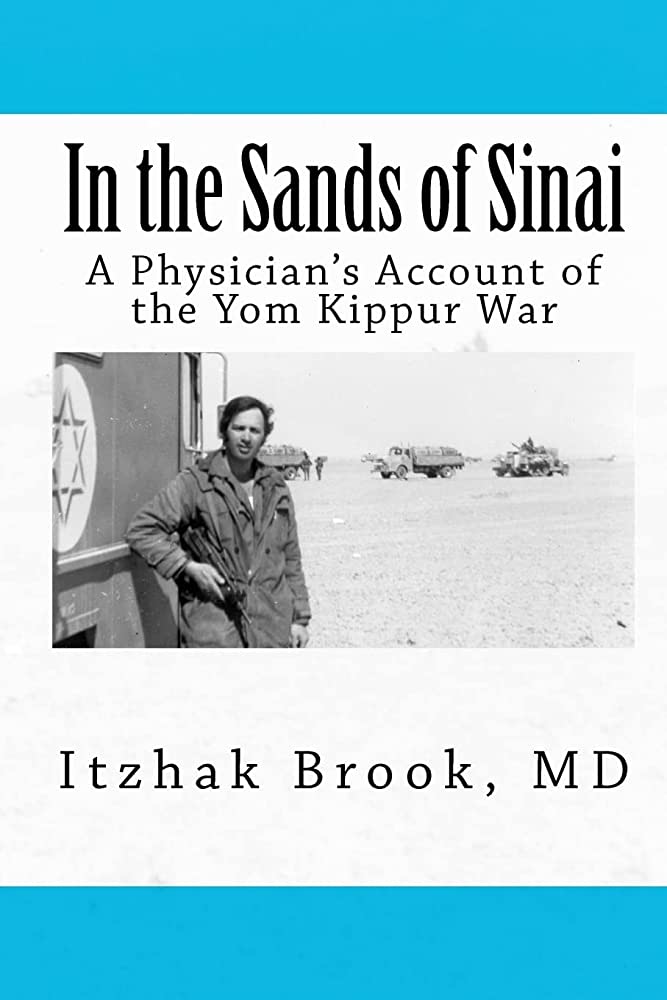
The 50th anniversary of the Yom Kippur War occurs this year. The war was launched in 1973 in a surprise attack by Syria and Egypt on the holiest day of the Jewish calendar. Even though the signs of an imminent attack were noted by the Israeli intelligence, the Israeli government decided to ignore them for political and strategic reasons. Consequently, the country’s borders were very sparsely defended, creating a dangerous void on the front. The invading armies outnumbered the Israelis at a ratio of more than a hundred to one in manpower and ten to one in armor and artillery.
Because the bulk of the Israel army is comprised of reservists, it took two days to mobilize and deploy the forces. During these critical days it was up to the vastly outnumbered soldiers on the front and Israeli pilots in the sky to hold the line and stall the attackers. It was the heroism and determination of these men that saved the country. Their devotion and sacrifice compensated for the woeful lack of sufficient equipment and supplies. The strategic depth of the Sinai desert and Golan Heights also provided the country the time needed to mobilize the reservists.
This war posed the most serious threat to the existence of Israel in modern history. Even though Israel was eventually able to achieve a military victory, the country paid a steep price, both in lives lost and in the citizenry’s confidence in their leaders and themselves. Almost three thousand soldiers gave their lives — a ratio of one death per one thousand Israelis, a painful price for a nation of three million. Over ten thousand individuals were wounded in the 17 days of fighting. Almost every household and neighborhood was affected. The pain and sorrow felt at the time continues to this day among affected families and the broader Israeli society. Deep within the psyche of the nation, this conflict shattered the conventional wisdom of Israel’s invincibility. It also illustrated the importance of having secure and defensible borders, while highlighting the urgent need for a lasting peace between Israel and its neighbors. An important outcome of the Yom Kippur War was the creation of the 1979 peace agreement between Israel and Egypt, ending more than thirty years of conflict between the two nations.
Assistance from the United States was instrumental in Israel’s victory. Ammunition, spare parts, armor and fighter jets reached the country at a critical moment, replenishing heavy losses and enabling Israel not only to repel the attackers but to go on the offensive, ending the war 65 miles from Cairo and 25 miles from Damascus. Moreover, the political and military commitments from the United States countered the Soviet Union which had threatened to intervene in the crisis on behalf of their Arab allies.
I was a battalion physician during the Yom Kippur War. Like thousands of Israelis, I joined my battalion which had been assigned to supply the armored corps with ammunition, fuel, water and food. These soldiers risked their lives, replenishing tanks with fuel and ammunition under enemy fire. I watched them overcome countless difficulties and perform their mission, despite constant danger, many of them paying the ultimate price. It was a daily struggle for survival, requiring resourcefulness and performance despite the constant presence of fear and anxiety. This war articulated my personal definition of courage: the performance of one’s duty despite one’s fear.
For Jews who lived through the Yom Kippur War, the holiest of the High Holy days will never be the same. For us, it stands not only as a day of atonement but as day of gratitude to God for the miracle of survival. It is also a time for remembering those who paid the ultimate price for preserving and protecting Israel, and will always commemorate a renewed commitment to preventing Israel from ever experiencing such a peril in the future.
Dr Itzhak Brook is a Professor of Pediatrics in Georgetown University and the author of the book: “ In the Sands of Sinai- A Physician’s Account of the Yom Kippur War.” The book can be read free and/or obtained at: http://yomkippurwarphysiciansaccount.blogspot.com/
By Itzhak Brook
